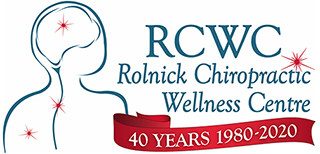Enhance Your Health
Health Tip of the Week: The Wonders of Vitamin D3
Powerful news this week concerning vitamin D3 and the CoVid-19 Coronavirus. As I have mentioned in previous health tips, vitamin D3 is an extremely important supplement for immune system function. Low levels of vitamin D3 have been associated with weakened immune systems.
A quick reminder, D3 is the sunshine vitamin. Other than supplementation, the only way to acquire vitamin D3 in the body is through sun exposure. It is basically why the flu season (all around the world) is in the winter time. Less sun exposure, equals less vitamin D. In turn, a lowered immune response to viral germs and bacteria.
There is plenty of research on vitamin D3 proving the necessity of supplementation for good health. In addition, research has shown D3 to have anti-cancer properties. One recent study published in the 2017 British Medical Journal found that D3 was safe and it protected people from acute respiratory infections. The study showed supplementation was even more effective at preventing respiratory infections in people who were low in D3.
Here is the news this week to further prove D3’s usefulness in fighting viruses. A new study from this April, in a pre-publish release used 212 patients with CoVid-19 and who had serum vitamin D3 levels taken. Of the 212 people, 49 had mild disease; 59 had ordinary disease; 56 were severe and 48 were critical.
In the study, 55 patients had normal vitamin D3 levels and 157 patients had insufficient levels of D3.
Of the 49 patients who had mild CoVid-19, 47 had normal D3 levels. Of the 104 patients who had severe or critical coronavirus, only 4 patients had normal levels of vitamin D3.
The study showed a correlation between low levels of vitamin D3 and the severity of CoVid-19 infections. This can provide clinicians important information that could improve clinical outcomes in fighting CoVid-19 with vitamin D3 supplementation.
Boosting D3 levels to normal would have a positive effect on immune system capabilities.
A recent editorial published in Alimentary Pharmacology & Therapeutics stated that "the hypothesis is not that vitamin D would protect against SARS-CoV-2 infection but that it could be very important in preventing the cytokine storm and subsequent acute respiratory distress syndrome that is commonly the cause of mortality."
In Ireland, a report published in April 2020 titled, "'Vitamin D deficiency in Ireland — Implications for COVID-19." Results from the Irish Longitudinal Study on Ageing (TILDA), finds that vitamin D plays a critical role in preventing respiratory infections, reducing antibiotic use, and boosting the immune system response to infections. The United Kingdom is now recommending that all citizens take daily vitamin D3 supplementation.
Oddly enough, despite the positive evidence for D3 use, the United States public health officials have not come out and recommended taking D3 as a daily supplement. The opinion expressed daily is that we need drugs and a vaccine.
As I have said from the start, the most important thing for us to do is to build our immune system by providing proper nutrition and supplementation for enhanced immune system function. This way, we could possibly prevent getting the virus or if infected keep the virus attack to mild symptomology. The medical stuff that we are waiting on could be used in severe cases to save lives if needed.
That being said, the key word in that sentence is “waiting.” I’m not waiting for the virus and neither should you. Take Vitamin D3 on a daily basis with a daily dose of vitamin K (K helps the D work better). The ideal dose for D3, as per many medical researchers and functional medicine specialists is 35 units per pound of body weight. The D3 capsules come in units. Example: 1000 i.u., 2000 i.u., 5000 i.u. Take your body weight and multiply by 35 and that is your daily suggested dosage in the winter time of if not getting sun in the summer.
Lastly, it is important to know what your D3 blood level is. If you are low, you may need more D3 to catch-up. Your doctor can order a lab test for D3 levels.

